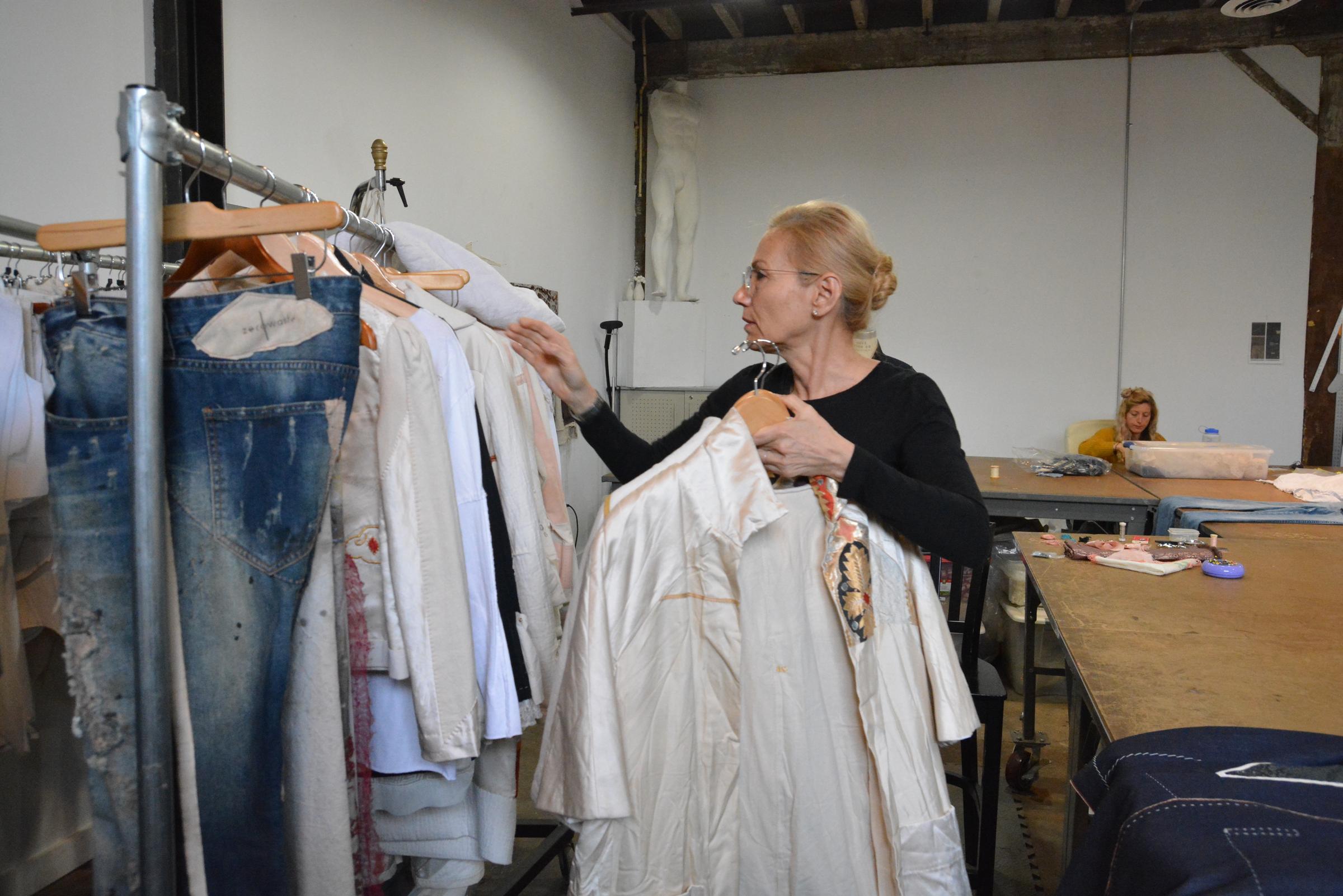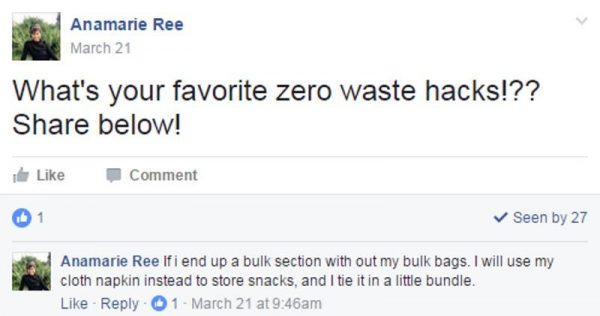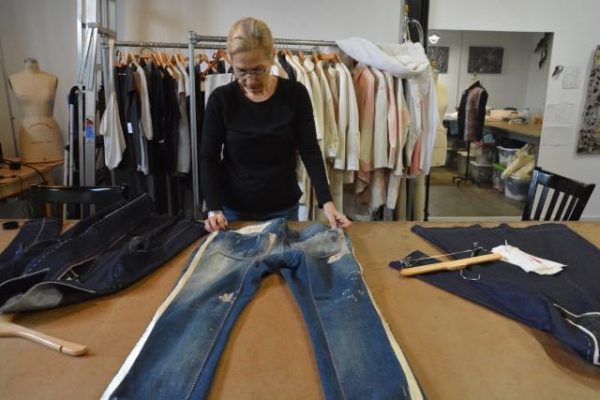A Look Inside Atlanta’s Growing Zero-Waste Community

Zero Waste principals inspired Atlanta fashion designer Karen Glass’ clothing line, which launched late last year.
Alison Guillory / WABE
First, the bad news: When it comes to trash, the average American reportedly produces more than 4 pounds of it per day. Over the course of a year, that adds up to 220 million tons of waste, more than half of which ends up in one of more than 3,500 landfills across the country.
Now, the good news: An eco-conscious movement is actively working to reduce that number — it’s called “zero waste,” and it’s taken root in Atlanta.
The zero-waste philosophy revolves around slashing waste production through recycling, composting, buying in bulk and buying secondhand, so that eventually practitioners are producing nearly no trash at all.
The movement isn’t exactly new, but it has grown through platforms like blogging and social media — searching “zero waste blogger” on Google or Instagram produces thousands of results from around the globe. The private “Zero Waste in Atlanta” Facebook group includes more than 40 locals swapping advice, tips and other tricks for eliminating waste in daily life.

Atlanta zero wasters share tips on a Facebook page devoted to the cause.
One of the members, Anamarie Shreeves, is a pioneer of the movement locally. An arts advocate, freelance consultant, program coordinator and communications expert, Shreeves holds zero-waste workshops at places like Sevananda and Hodge Podge Coffee House, as well as offices and universities.
She also runs the blog Fort Negrita, where she posts about everything from whether or not she uses toilet paper (she does) to making her own toothpaste, body butter, mascara and shampoo.
Shreeves launched her blog in 2013 to chronicle her journey to living a more sustainable life.
“[I shop] in two sections of the grocery store, the bulk section and the produce section — I’m buying food without any packaging on them,” she said.
Shreeves brings her own bags and mason jars to fill with her produce and dry goods. She buys all of her clothes secondhand (though she tries not to do much clothes shopping), and at concerts and festivals, she brings her own cup when she goes out.
Her waste level: Fitting eight months of trash into a mason jar.
Clean Business Model
Some have adopted the practices in more than personal ways.
Karen Glass, a fashion designer with more than 40 years of experience at fashion houses in New York and Paris, found the zero-waste community out of necessity.
She started infusing the practices into her life (without even realizing it) while building and maintaining a small organic farm in Florida. When she moved to Atlanta a few years ago and settled at The Goat Farm Arts Center, she decided to meld her love of sustainability with her career in fashion to embark on her own clothing line, zerøwaste, which launched in late 2016.

The womenswear pieces are created from scraps and leftover fabrics that Glass has collected over the years — everything from woven silks from Shanghai factories and Italian textile end-cut leftovers to flea markets and thrifted menswear. Her three collections, created with the help of apprentices, consist of basics (T-shirts, jeans and button downs), a knitwear line (made with Global Organic Textile standard certified materials) and an “archives” line, made from high-end luxury fabrics, with pieces priced at an average of around $5,000.
She’s currently in talks to get a brick-and-mortar location in Phipps Plaza.
Atlanta business owner Corinne Coe has been a zero waster for decades. She hasn’t just incorporated the principals of zero waste into her business, she created the entire company around them.
Her firm, Terra Nova Compost, founded in 2013, provides compost education and consulting. The company helps people learn to waste less through workshops for kids and adults, installation of compost systems, consulting and developing community programs. Terra Nova even launched a bike-powered, community compost project on the West End.
“We are taught not only that it is OK to consume, but that it’s a good thing,” Coe said. “That’s uncommon in other parts of the world and certainly in traditional cultures.”
Terra Nova is based in Atlanta, but also does work in several other states, as well as internationally.
‘Mindset For Living’
Still, zero waste has to start with personal habits, practitioners say.
Personally, Coe composts as much as possible — including cotton swabs and hair from her brush.
“There are environmental and social costs that are hidden behind the veil mass production,” she said. “Zero waste makes sense for the environment and in terms of social justice.”
Glass echoes those sentiments, saying zero waste is “my mindset for living.”
“I hope we can inspire people to live and work the same way, to really focus their life on what’s important,” she said.
She advises those curious about the movement to start with baby steps, like buying in bulk or shopping more secondhand.
“Compassion is so key in getting people to understand and accept something that could be very radical to them,” she adds. “It takes a bit of a push to change people’s minds.”
Where to shop?
- Sevananda: A natural food market that locally sources its products.
- Buffalo Exchange: A second-hand store where environmentally conscious customers can buy, sell and trade clothing.
- Rainbow Natural Foods: A natural food market in Decatur.
- Your DeKalb Farmers Market: This market has been around since 1977.
- Value Village: This thrift-store chain bills itself as Atlanta’s largest thrift department store.








